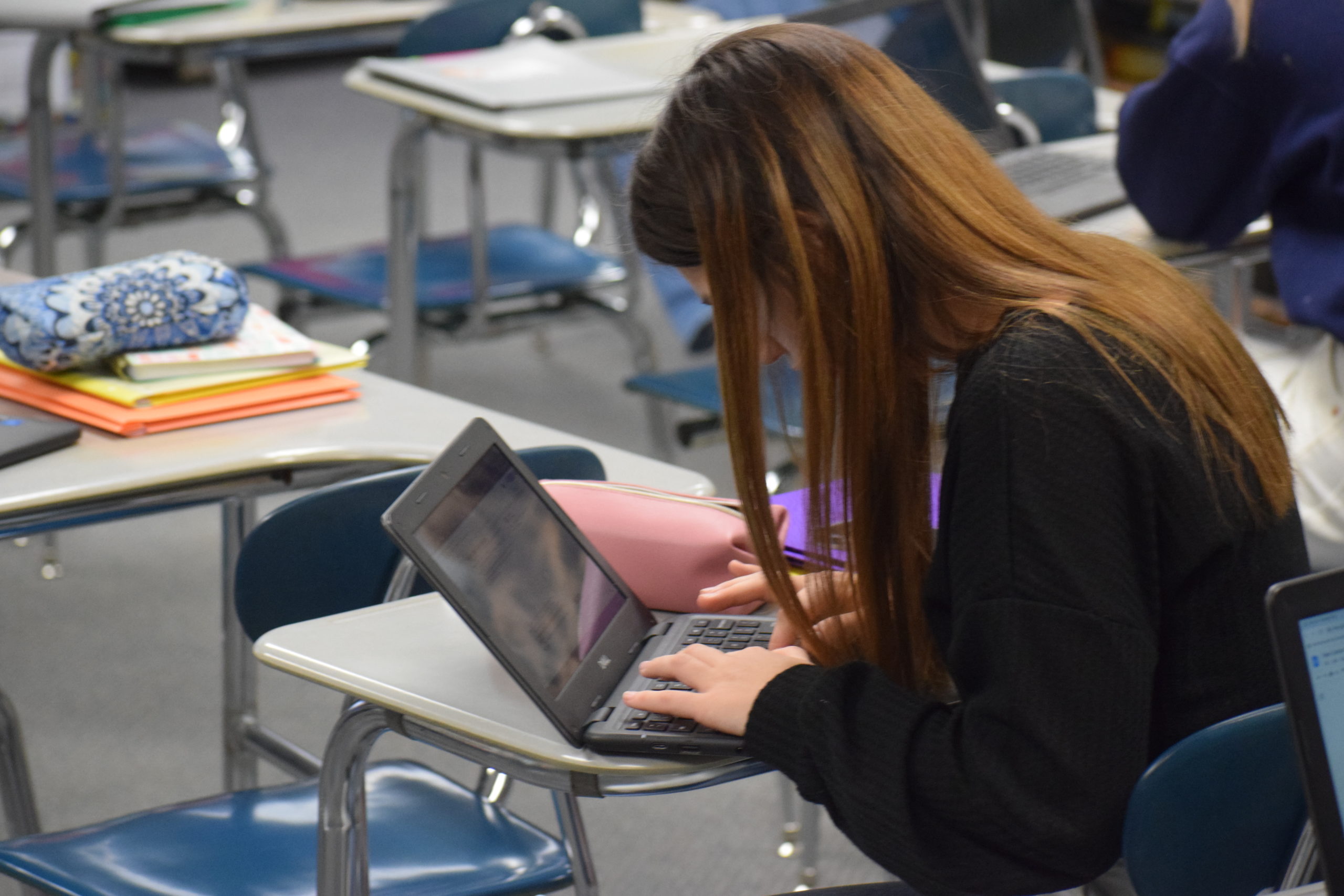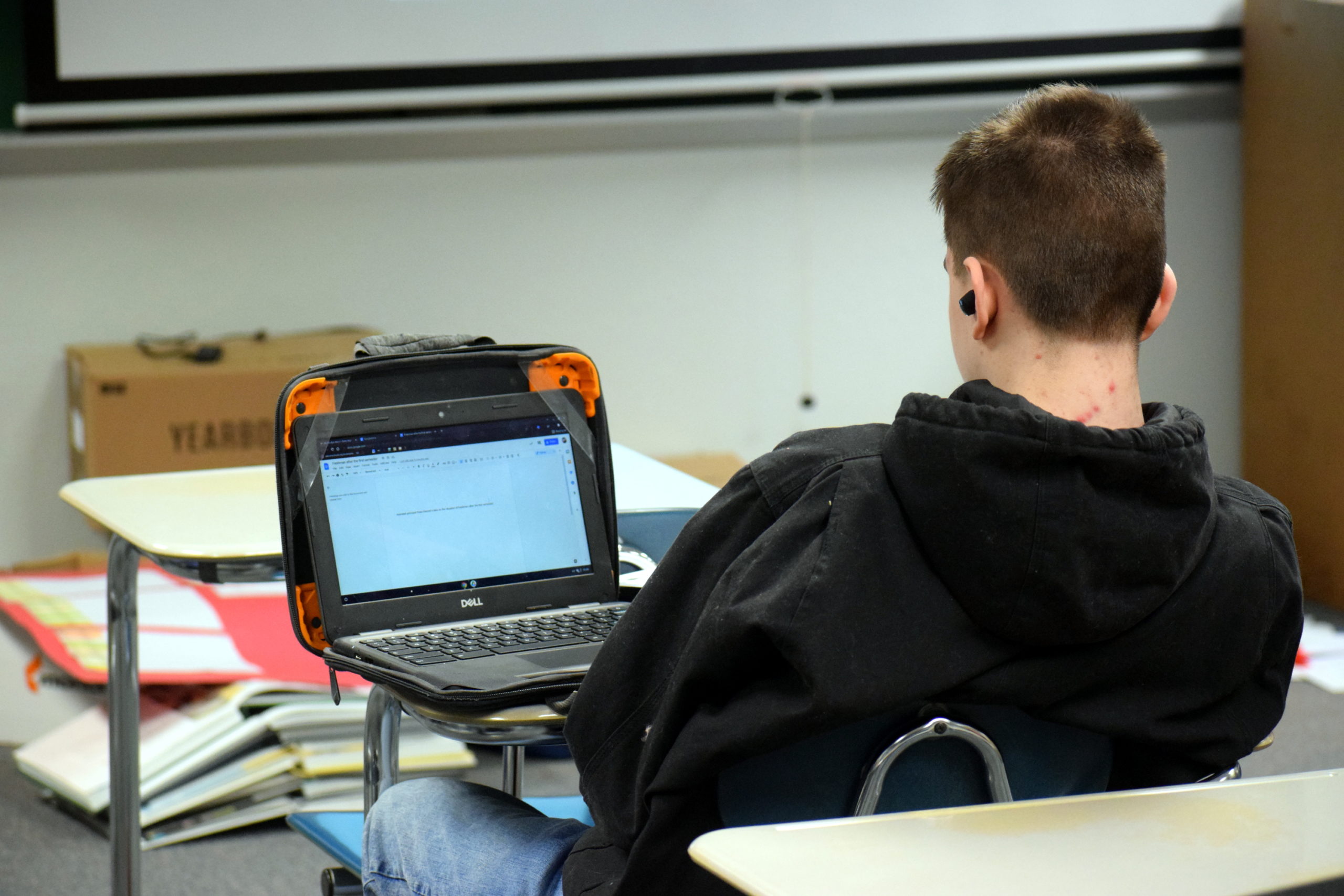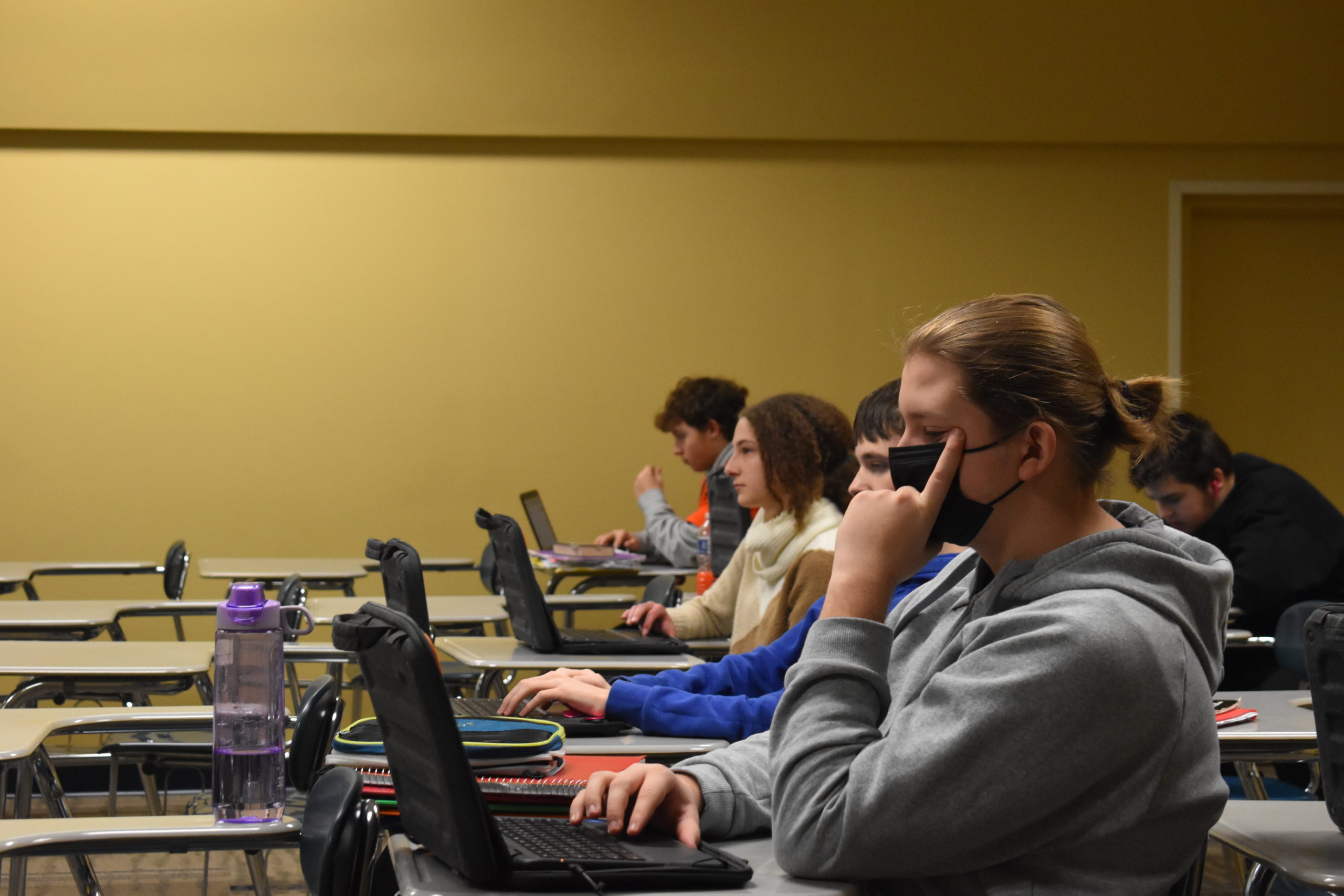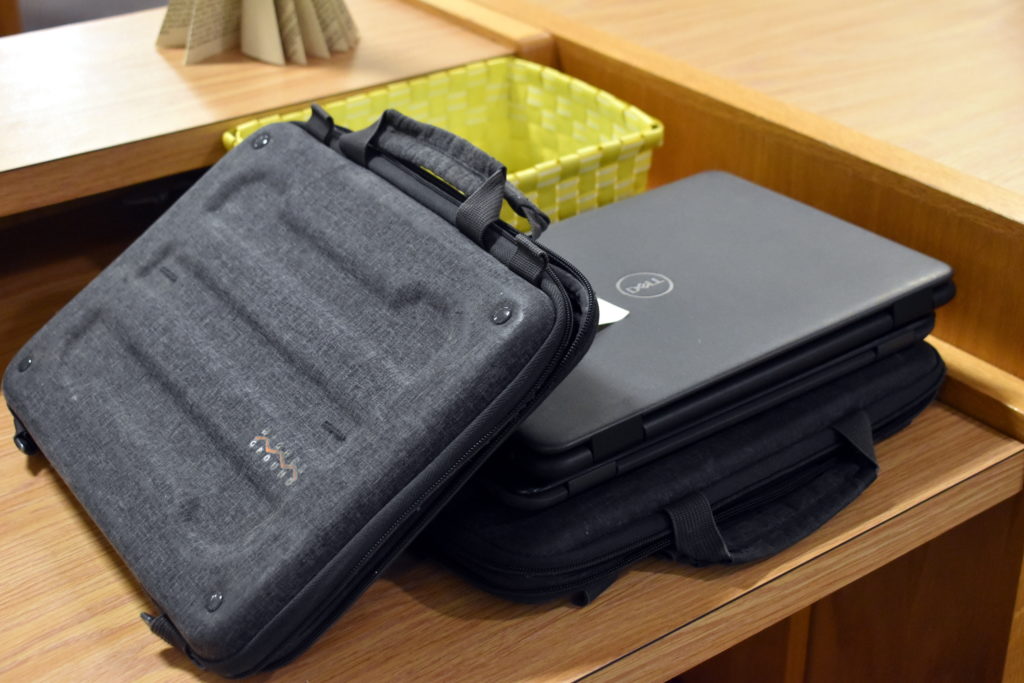By Grayson Zoller
Technology is always changing and adapting to the situations we find ourselves in. At the beginning of the 2017-18 school year, Delta High School decided to enter the modern age of education by upgrading from several single-class sized computer labs to a new idea for the school: one-to-one Chromebooks.
This meant that every student would have a personal Chromebook they were free to take with them from class to class and eventually back and forth from home to school.
The laptops have allowed for a huge shift in the way research is done, papers are written, and the way the entire school operates. It’s been five years since we first introduced the Chromebooks. How have teachers received them so far?

English teacher James Lodl was someone who was immediately onboard with the Chromebooks.
“I feel like I’m a lot more accessible because I’m me here in the classroom, but I’m also my email, and I’m also a Canvas message,” Lodl says. “There are a lot more ways to reach me from a student perspective.”
Lodl also says that the Chromebooks help with “soft skills,” or skills that aren’t necessarily related to the current subject you’re learning. These include typing skills or learning how to use a search engine like Google more efficiently.
While some may claim that the Chromebooks act as a distraction to students, Lodl said that he thinks they don’t distract students much, saying that human nature was enough of a distraction on its own.
“If you put paper and pencil in front of a kid, they’re gonna doodle. They’re gonna draw. They’re gonna get distracted. Life is full of distractions.”
Lodl doesn’t think that paper and pens have become obsolete, though. “Practice – paper and pencil,” he said. “Test stuff – way easier to do on Canvas.”
The quarantines in 2020 and 2021 weren’t too hard for Lodl to adapt his teaching style to, saying that altering his educational curriculum to Chromebooks only was “completely doable.”
This doesn’t mean it was perfect, however. Many students simply wouldn’t do their work during the quarantines.
“I had a lot of problems with missing assignments.… I think students were just like ‘This is not worth my time,’” Lodl said. “… School is more of a priority when you’re at a desk in a room and everyone else is working on their math assignment. You’re just gonna be like, ‘Okay, it’s time to work.’”

However, not all subjects benefit as much from the laptops. Chemistry teacher Terry Summers doesn’t use the Chromebooks in his classroom very often.
He says that doing things physically on paper is simply faster and more efficient, noting that writing out a problem on a Chromebook would take three to four times longer than writing it on paper.
Chemistry labs don’t get a lot of use out of the Chromebooks, either. The most they can do for you is assist in collecting data or making a graph, Summers says.
Summers also thinks that students now want classes to be a bit more interesting and engaging, saying that “there’s a little more entertainment that has to be done [while teaching].”
Spanish teacher Mary May had been a teacher for 21 years at the Jay County School Corporation. This is her first year at Delta, but this isn’t her first time with technology.
She reminisces back to when she was in high school, where computers were a rarity. “We had maybe one little room that looked more like a closet that had maybe six or eight computers, and when I started teaching we had an [electric] typewriter.”

She comments that the early computers were notably slower than the computers that we have now.
Spanish is a class that could, at a glance, easily lend itself to cheating with an online translator. However, May isn’t particularly concerned with it.
“When computers started becoming more popular, it was so obvious to me when a student was cheating,” May said. “You know the level that they’re at in Spanish. You know where they should be and their fluency. At first, the translators were terrible. For example, if you put ‘I can’ in, it might say ‘Yo lata.’ ‘Yo lata’ is like a can of beans. And students wouldn’t catch that, but when I read something they wrote, I’d be like, ‘Oh, but I taught you this verb, ‘puedo,’ which means ‘I am able, I can.’”
She also says that an assignment could be too good to be true. Examples of this include the use of punctuation not yet taught in the class, use of verb tenses, and even sounding more articulate than a native speaker in their writing.
May said that doing Spanish during quarantine was difficult, and that she would meet three times a week virtually with her students at Jay County.
“I thought it was important for high school students to still get that social contact, and on Fridays I did a thing where you could bring your pet to class,” May said. “It wasn’t really about Spanish a lot that day, it was more ‘Hey, I live on a farm, do you want to see my goats?’”
Last year, Jay County employed an uncommon strategy called Real Time learning. Students who were at home would connect to a classroom and the teacher would teach physical students and virtual students at the same time.
“It was very stressful for teachers to be doing both [physical and digital],” she said.
May tries to keep a balance between using the laptops and not, saying, “I try to do more without the technology, but include it in my lesson plans.”
When presented with a brand new outlet for learning like the Chromebooks, teachers will always take different ways about utilizing the new tool at their disposal. Whether it be an electric typewriter, pocket calculators, or even something we have no idea of yet, it’s a guarantee that it’ll make its way into education one way or another by at least one teacher.
When something comes along that will change the way we learn even more than any current computer or gadget does, we will adapt with and around it, just as much as we have done for the Chromebooks.






